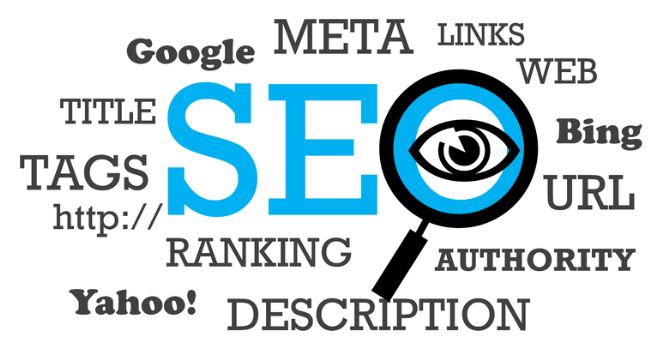
We all know that search optimisation or SEO as it is usually called is the art of gaining positions within search listings with the hope of increasing traffic thus enabling you to sell more of your products or services. There are many techniques that enable a website to appear higher in search listings for keywords or keyword phrases. Although a complicated process, the idea and strategy behind this service is not as complicated as some companies may make you think.
Do not forget, search engines act as the middleman between your site and a potential customer so, you have to feed it the information it’s looking for. As Google carries some 85% of all searches on the Internet then we usually focus specifically on this search engine giant but, by making your website search friendly then ultimately you are answering to all requirements.
Google’s algorithm looks at many distinct ranking factors, but only some of them have ever been revealed. Others can be judged to exist based on strong, trial-and-error evidence.
The following article therefore looks at a few areas that are vital to deliver this increase in search popularity.
Quality Content
This of course is one of the most obvious factors in increasing your site’s visibility. Creating quality unique content based on a particular theme to support your websites keyword focus is vital. It’s something that’s often overlooked by web managers as they tend to focus primarily on the technical aspects of SEO and forget about user experience. Google cares deeply about quality content and so you should too.
Do not forget that linking someone to information that properly answers their search query is the whole purpose of a search engine, and Google’s algorithm updates have always developed in order to understand this goal.
So, how do you write this content? Keywords are important, but you don’t want to overuse them. Such “keyword stuffing” tactics used to be effective, but Google has since cracked down on this. You need to take a holistic view of your website. A good way to utilise keywords is to only use them when they fit into the text naturally, in certain strategic places like HTML headers and page URLs.
Quality content underpins your rankings and is important with many areas of search optimisation. If people find your page valuable then they will link it to their friends, Google will take note of this incoming link.
Properly Format Your Website
One thing Google is always looking for is a website that is user friendly so, you will want your website to be easy to navigate for any potential visitors. When it comes to ecommerce this can be used to optimise your sales funnel, but a good user experience is also really important.
Having a website that’s intuitive and easy to read will increase the amount of people that stay. If you also have helpful content, rather than an unorganised mess of text, then this will encourage more visitors!
Having a clear link structure that links naturally from one page of your site to the next not only increases user experience, but also enables search engines to index the whole thing. Dead links will be penalised, so make sure any are removed.
Optimise Your HTML
When it comes to the code your site is written in there are certain important steps to take. Using keywords strategically in your HTML elements is much more important than using it many times in the text of your website – this is your chance to describe the content of your site both to visitors and search engine crawlers alike.
Having keywords in your header tags is one of the most basic SEO approaches. Google actually rates keywords here more heavily, so be sure to include them. Your websites H1 is more important than its H2, and so on. You should still use H2, H3, etc. to organise your site and make it more legible to the person visiting it. Additionally, you can put keywords in the title tags that follow the header tags.
HTML enables you to change each URL on your site, and here is another excellent opportunity to use keywords. Many sites will just index their pages with numbers instead of keywords describing what they are about.
Make Sure Your Pages Load Quickly
People searching the web want to find what they’re looking for quickly and easily, if they don’t then they will leave. This means there is a correlation between the speed of your site and the number of conversions you get. To make things even worse, Google’s algorithm views both slow loading times and a high bounce rate negatively, meaning that slow load times will have a poor impact on your site’s rankings.
There are many ways to make sure your pages load quickly. One of the most overlooked factors is image size. It’s great to have images on your page, but if the file sizes are unnecessarily large they will make it slower to load. There are many free tools that will compress the size of images without reducing their quality, so download one and start using it.
Another way to decrease load times is to enable browser caching. Browser caching simply places HTML documents, CSS files, etc. into temporary storage when someone visits your site so that when they return, these files can be quickly recalled, they don’t have to reload a second time.
Enabling GZIP compression will compress the size of files on your page, making it load much faster. Additionally, you can take steps to minimise HTTP requests for example, combining CSS and HTML files.
Optimise Your Page for Mobile
There are many more searches completed today using mobile devices rather than desktops, and in response to this Google has adopted mobile-first indexing. This means making sure your site is easily accessible to a person using a smartphone is vital to its success.
It’s best to segment your on site content in short paragraphs of two to three sentences when optimising for mobile. Keep in mind that people accessing your site through a mobile device will most likely want short, concise answers to their questions, and if the text looks like a novel they’ll be less likely to read it.
The best way to optimise your site for mobile is to use a responsive design. A responsive design automatically optimises the layout of your website to the screen of whatever device is being used to access it. This means you only have one website to manage – if you post an update from a desktop, it will also be displayed correctly on mobile. Responsive sites will load faster on mobile; page loading time is particularly important for mobile pages, and Google uses it as a separate ranking factor from desktop loading speed.
Build Links
This has always been one of the most important aspects of SEO. Simply put the more high-quality sites that link to your website, the more reliable your site will appear and the higher it will rank in search engines.
Many people used to try to cheat the system by entering link networks to artificially increase the number of inbound links, but Google will now penalise this. So how do you build links?
The most best way is to create quality content. Links will come naturally if your content is valued within your particular niche. However, you can also make guest posts on respected sites within your field. This will also have the added benefit of increasing your visibility.
In addition to having relevant sites link to you, it’s also a good idea to link to high authority sites from your own page. This increases your trustworthiness in the eyes of Google and gives it more of a solid idea as to the topic of your website.
Get an SSL Certificate
Internet security and the protection of user data is a hot topic. HTTPS ensures that users’ information is transmitted securely, and it is believed that Google sees that as a sign of the trustworthiness of your site. SSL certificates are free, so there’s no reason not to get one. Having the padlock next to your URL means people will view your site as secure and want to stay.
Use Images
Diversifying content on your page is important. Images spice up articles – a wall of text without an accompanying image can look boring. It’s not enough to just include these images, they too must be optimised for search.
Like all things SEO, you can have too much of a good thing. Use images in moderation and where they’re relevant – too many images can distract from the written content you want the person to read.
Have a Social Media Presence
Having a presence on social media is important for any type of business if you want to drive traffic to it. Do not forget, people by from people and therefore if your associate posts something then you are more likely to buy too! We must also remember that certain demographics will spend more time on one site than the other. For example, generation Z uses Instagram much more often than Facebook. If you’re advertising a photography business, your presence on Instagram is more important than your presence on Facebook.
Summery
Overall, most SEO tactics are really ‘common sense’ but sometimes these are overlooked. The tips above are some of the most important to ensure your site ranks well in 2020, but patience is an important factor as well. Overall, produce valuable content that your readers like and ensure your site is set up correctly. If you make sure of this then Google will like you, but so will your audience.




